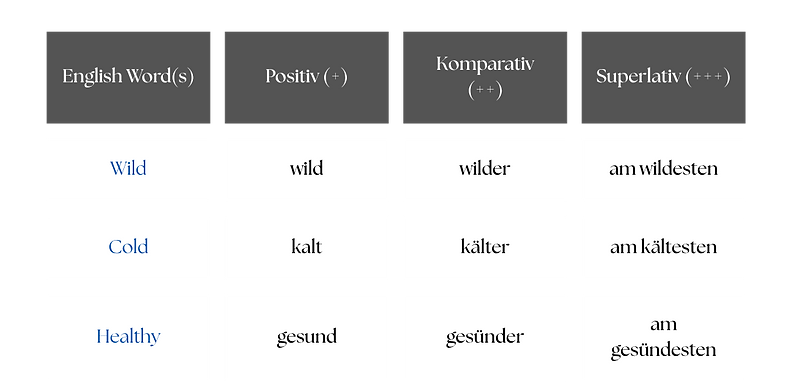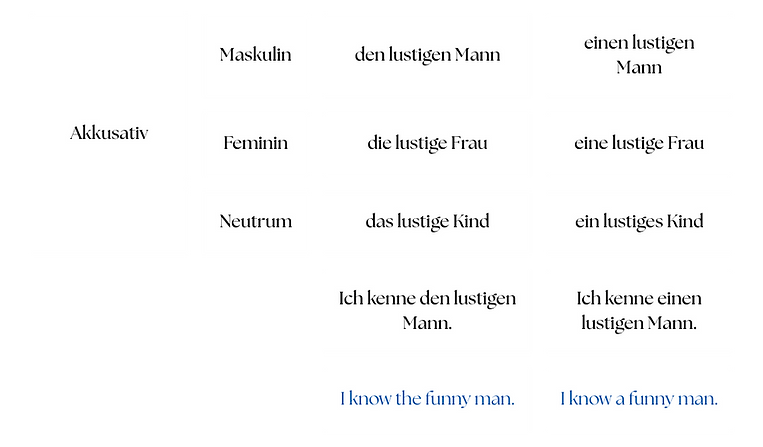
Predicative Adjectives
Predicative adjectives (which stand independently in a sentence) always have the same form, without endings.

Comparison of adjectives and adverbs
Adjectives and adverbs have special forms for comparisons.
There are three levels of use: the positive, comparative and superlative forms.
In the comparative, adjectives take the ending '-er'; in the superlative, 'am' comes before the adjective, which takes the ending '-sten'.

Short adjectives which have an '-a-', '-o-', or '-u-' take an umlaut in the comparative and the superlative.

Adjectives which end in: '-t', '-d', '-tz', '-z', '-s', '-ss', '-sch','-ß' take the ending '-esten' in the superlative.

Adjectives which end in: '-el', or '-er', lose the '-e-' in the comparative.

Irregular forms of comparison:

Constructions for comparisons
so + Positiv + wie

Komparativ + als

Declension of adjectives
Adjectives used attributively (between the article and the noun) must have an ending. This ending depends on the preceding determiner (article, pronoun, etc.).

If there is no article before the noun, the adjective has the case ending.

If the article before the noun has no case ending, the adjective has the case ending.

Endings: '-e' / '-en'





Plular

If the article before the noun has a case ending, the adjective has the ending '-en' or '-e'

Adjective-derived nouns with indefinite pronouns
Many adjectives can be converted into nouns. They appear as nouns after an indefinite pronoun such as something, much, little, all, nothing and must be capitalised. They are declined according to rules for adjective declination.

